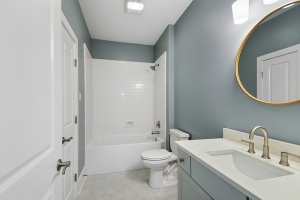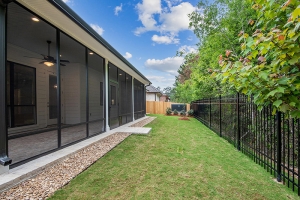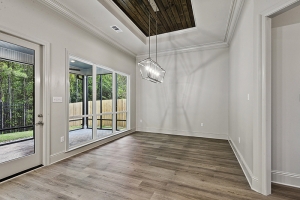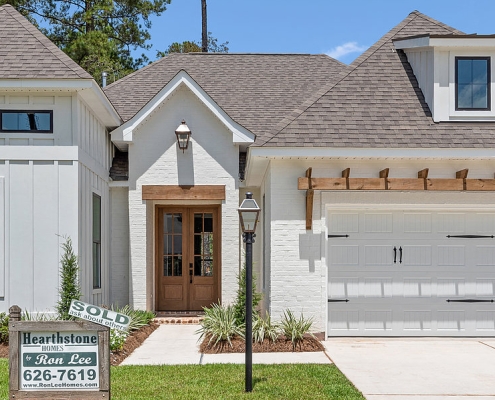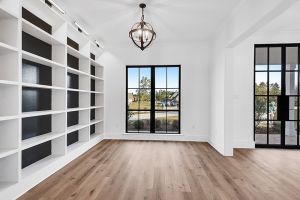Tile can last throughout
time in bathroom designs and really never goes out of style. Tile can
make it easy to clean your space. “The appeal of an all-tile bathroom is
multifaceted. The look conveys luxury and is on trend right now,” says
designer Morgan Farrow of Morgan Farrow Interiors. Here are several tips when creating an all-tile bathroom. 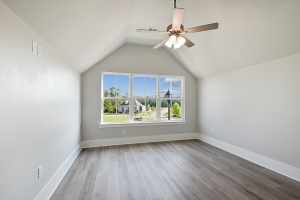
Pick your look.
“I first consider how the space is being used. A Jack-and-Jill bathroom shared by siblings should be treated differently than a primary bathroom shared by siblings should be treated differently than a primary bathroom used by adults, both in terms of materials and colors,” explains Tess Twiehaus of Tess Interiors.
If you are focusing on a kid’s space, start with using ceramic or porcelain tiles which are the least expensive. They are easy to clean and kid-tolerable. For a master bathroom, going with a higher-end tile like marble or travertine is a plus. They do require more maintenance so be picky about where you install. Tile shops around offer tons of materials from natural stone to ceramic to porcelain. They come in all shapes, sizes and colors.
Mix it up.
“We love mixing tiles, and often use two or three in a single space,” says Farrow. You do not have to worry about the colors and textures clashing but you just have to make sure the color tone in tiles that will be adjacent meshes.
“The benefit is that mixing allows you to get layers of color and pattern,”says Farrow. You can mix and match high-end pieces with budget-friendly pieces to help with the cost.
An accent tile can add intrigue but isn’t required.
When adding an accent tile, it can brighten the space and elevate the room. This is just a bonus but you do not have to add accents to have a great-looking space. Remember that there’s no need to check every box on some imaginary design checklist. “If the room feels special with it, then go for it. But if the addition feels random, take it out,” adds Farrow.
Don’t underestimate your order.
This can be a little tricky because you do not want to order too much tile or not have enough. A rule that Twiehaus offers is to order 20% more than you think you will need. “I wouldn’t stress about it being too much. You will absolutely need extra tile in case you have a discoloration or a few pieces break,” she says. You want to confirm with your designer about any specifications before you order.
Following these tips can be a great way to get your bathroom up -to-date in a great style that is easier to maintain and clean.
